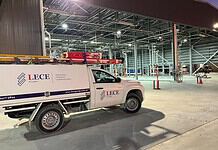Aggreko launches second RAP with Cathy Freeman as special guest

Aggreko launched its second Innovate Reconciliation Plan (RAP) during National Reconciliation Week (NRW), with special guest speaker Cathy Freeman.
Aggreko launched its first RAP during National Reconciliation Week 2020, which provided the blueprint for the organisation’s commitment to celebrate Aboriginal and Torres Strait Islander peoples’ cultures, acknowledge the history and build closer relationships.
To commemorate the milestone of being one of the first companies in the hire and rental industry to begin its second RAP, Australian Olympian Cathy Freeman was invited to deliver a keynote speech to employees and key customers.
Chef Nornie Bero of Mabu Mabu provided catering.
Aggreko AusPac managing director George Whyte commented on the launch.
“Our business is committed to making a positive difference to the lives and communities of First Nations peoples,” he said.
“Importantly, this RAP further extends our efforts in the remote communities where Aggreko operates particularly around our four renewable projects in Weipa, Gove, Laverton and Menzies.
“Our next RAP contains detailed actions that are ambitious and achievable. We want to increase access to employment and procurement with First Nations-owned businesses and employee participation in training and days of cultural significance.”
Reconciliation Australia chief executive Karen Mundie says reconciliation is a long journey.
“Through the development of a second Innovate RAP, Aggreko joins over 1000 dedicated corporate, government and not-for-profit organisations that have formally committed to reconciliation through the RAP program,” she said.
“Reconciliation is hard work – it’s a long, winding and corrugated road, not a broad, paved highway.
“Determination and effort at all levels of government and in all sections of the community will be essential to making reconciliation a reality.”






















